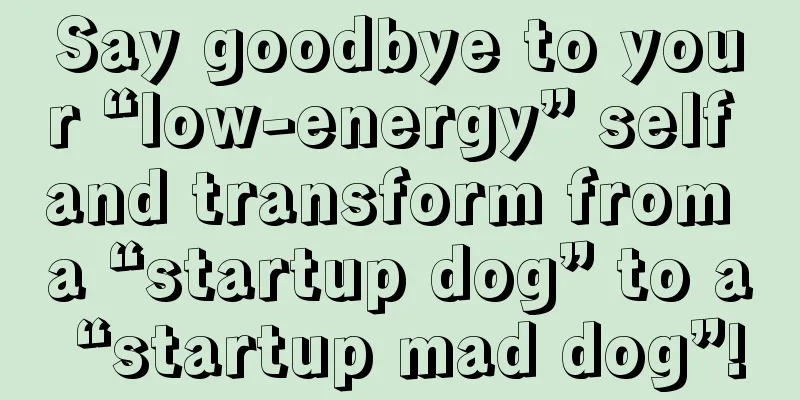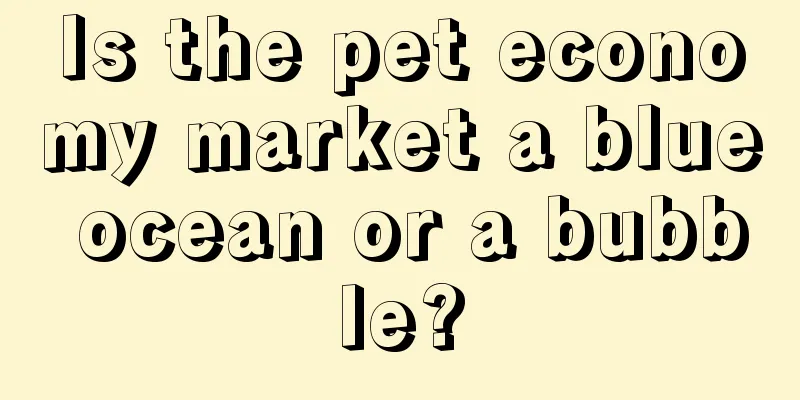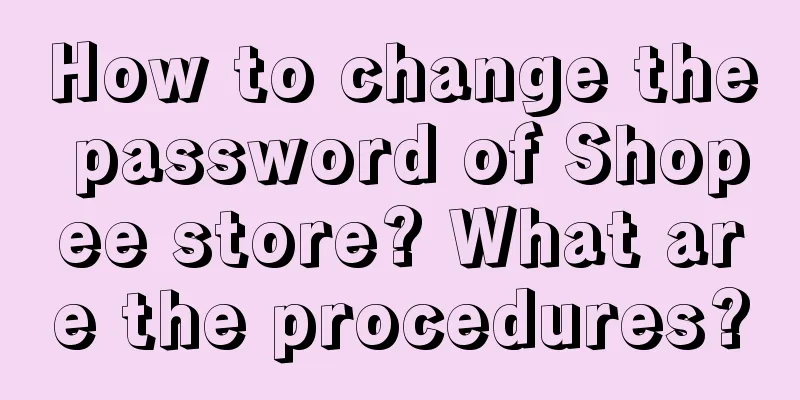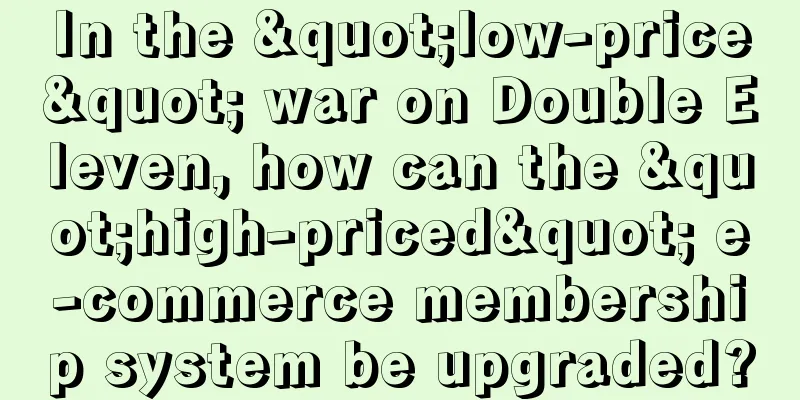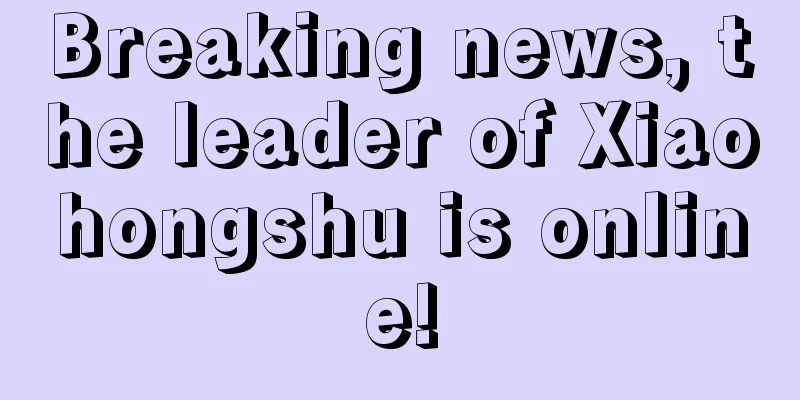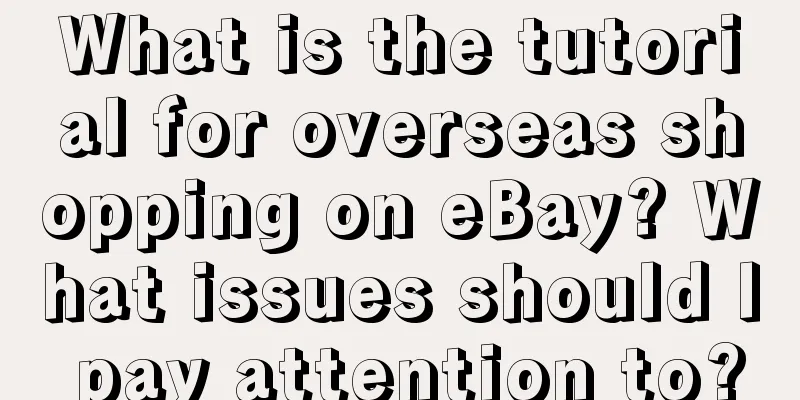WeChat issued an announcement to regulate marketing content. Is this reasonable?
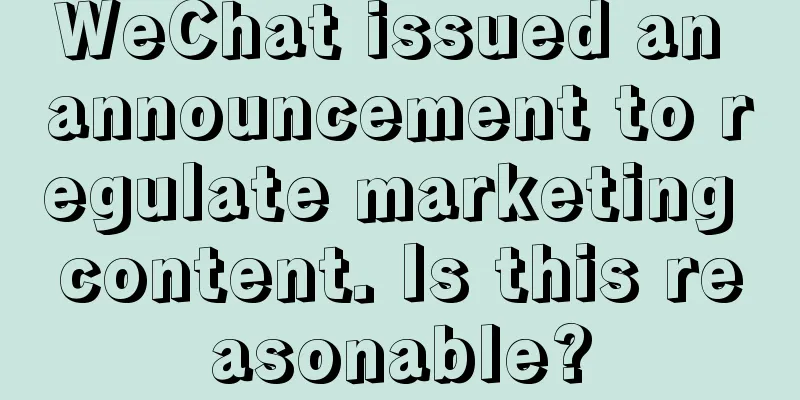
Within one month, WeChat issued two consecutive announcements to regulate marketing content. First, content creators are required to clearly mark advertising content when they publish it. Second, brand owners are required to register on the Tencent advertising platform and publish advertising tasks. Otherwise, WeChat will restrict the relevant permissions of authors and advertisers. This seems like a regulatory move that can help some users reduce the impact of phishing, scam ads, etc., but WeChat's approach cannot solve the fundamental problem. 01 No clear standardsWeChat simply released two brief regulatory announcements, causing panic among advertisers and authors in the circle. The boundary of what exactly counts as advertising has always been ambiguous. For example, this sentence: The operator of the public account promotes goods or services through commercial cooperation with third parties. So what does this third party refer to? Can I use Youzan or Weidian to publish product links? Can I use Fenchuan to publish circles and articles with paid content? Can links to other products or event registration appear in my article? 02 What should players who rely on the WeChat ecosystem do?Let’s assume the worst-case scenario, where QR codes and links from third-party platforms cannot appear in tweets. As mentioned earlier, courses, consultations, registrations, voting, merchandise, etc., will be a huge blow to players who rely on the WeChat ecosystem. Take Youzan and Weidian as examples. In the past, users scanned codes to go to their links and apps, but now the road is blocked. So, what exactly is the so-called third party? Does it mean that H5 and apps are not allowed? Or even mini programs are not allowed? WeChat itself has a function that supports jumping to external links. If it is really restricted, it means that the traffic of many products will be cut in half. Of course, it is not ruled out that WeChat will create a whitelist and users will have no choice but to use them. But this practice will undoubtedly stifle small and medium-sized entrepreneurs and restrict transactions and innovation. 03 For creators, the most important thing is that they have no moneyWeChat official accounts have never figured out why many high-quality content creators have left and stopped updating. Because I really update it with love. Nowadays, there are not many people around me who really make money from public accounts. For example, WeChat public accounts support four monetization capabilities: Paid reading, content rewards, product release, and traffic sharing. However, it is difficult to make money with any of the above monetization capabilities. For example, the author once wrote an article with over 100,000 views, but the traffic income did not exceed 10 yuan and the reward was 0. WeChat revamped its public account push notifications, thinking it would increase traffic, but in fact the traffic has been getting worse. 04 Increasing followers and exposure is the first priorityWhile public accounts are thinking about regulation, they should also think about how to help many content creators increase their followers and exposure. For example, the push mechanism is getting deeper and deeper into the dark, and even some accounts cannot receive push notifications even after they are released. Secondly, in terms of recommendation mechanism , how to help authors gain exposure in terms of search, similar articles, take a look, hot lists, etc. Thirdly, in terms of advertising revenue , the same exposure of public accounts is far less than that of headlines. The bloggers can only get a little money when users click on the advertisements of public accounts. This little bit of money is just a few cents or dimes. The vast majority of public account bloggers, even if they update their content every day, do not even have 50 yuan in traffic revenue a month. Fourthly, in terms of activity income , other platforms can obtain some profit dividends by participating in some activities, but if the official account does not sell goods itself, the small author will have almost zero income. The so-called small authors are those who have less than 50,000 or even 100,000 fans, because an article they publish may not even have 500 reads. Fifth, in terms of traffic exposure , it is recommended that the official account can make the button for users to follow more obvious, so that when the author publishes content, there are some activity topics to choose from, so as to obtain some traffic recommendations. Otherwise, blindly imposing restrictions will further dampen the enthusiasm of mid-level and lower-level content creators. Since the official cannot give enough money, and I can’t use external free tools to monetize, isn’t this extremely difficult? Author: Village Chief, WeChat public account: Shili Village |
<<: Summer is here, and brand marketing in June should also heat up!
Recommend
What should Shopee local stores sell? How to operate?
For some friends, choosing to open a store on the ...
What are the common mistakes that new Amazon sellers make? Have you made any of them?
For third-party sellers, being able to sell produc...
Practical tips: Discounts, buy-one-get-one-free, pre-sales, group buying, this is enough for membership marketing!
The current Internet business model has spawned a ...
Where is the Amazon tracking number? How to edit the Amazon tracking number?
In fact, the Amazon tracking code is similar to th...
AI is a standard feature of future SaaS, but it is not a panacea
In recent months, AIGC (Artificial Intelligence Ge...
Not only love, this month the brand is also talking about freedom and distance
February is the first full working month after the...
How long does it take for Amazon Brand Registry to be reviewed? Why was Amazon Brand Registry rejected?
There are relevant rules for entering Amazon, espe...
Is the Amazon Logistics New Product Warehouse Promotion Program OK? What are the benefits of joining?
As one of the world's largest e-commerce platf...
Does Shopee's transshipment warehouse need to be changed frequently? What should I pay attention to?
No matter what platform it is, since you open a st...
Comprehensive data comparison! Walking with Hui vs. Eastern Selection, who wins?
The competition between Dongfang Zhenxuan and Dong...
How to use the mobile payment virtual card? What are the rules of use?
With the rapid development of technology, mobile p...
There are so many outdoor UP hosts, why is Xu Yun the only one who has become the top streamer on Bilibili?
This article focuses on Xu Yun, a top outdoor UP h...
Incremental Big Model: Brand Methodology in the Digital Age
In the stock era, how can enterprises achieve grow...
How often are Amazon advertising fees settled? How are promotion costs calculated?
Many people will promote their stores after openin...
What does it mean to abandon a bid on eBay? What should I do if I don't want the item I won?
Merchants who open stores on the eBay platform nee...

